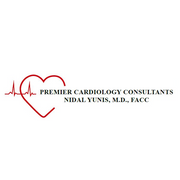
Amyloidosis is a rare disease that occurs when amyloid, a protein byproduct, builds up in one or more organs. There are several types of amyloidosis, some of which affect the heart and inhibit its ability to function. If you have a family history or you’ve received a diagnosis from your cardiologist, read on to learn more about this rare condition.
What Causes Amyloidosis?
Some types of amyloidosis are genetic, while external factors like inflammatory conditions or long-term kidney dialysis cause others. In some cases, such as AL (immunoglobulin light chain) amyloidosis, the cause is unknown. AL amyloidosis, also known as primary amyloidosis, is the most common in developed countries and most likely to affect the heart.
Hereditary amyloidosis, or familial amyloidosis, is inherited. It usually occurs when the protein transthyretin (TTR) is abnormal. People of African descent have a higher risk of carrying the genetic mutation associated with this abnormal protein.
With wild-type amyloidosis, the TTR is normal but produces amyloid for reasons unknown. This type usually affects the heart and is most prevalent in men over 70.
What Are the Symptoms?

You might not experience any symptoms at first; however, as the disease advances, symptoms resembling those of cardiac arrest may arise. These include weakness and fatigue, shortness of breath, lightheadedness, swollen ankles and legs, heart palpitations, chest pain, and numbness or tingling in the wrist, hands, or feet. If you have one or more of these symptoms, schedule an appointment with your primary care doctor or cardiologist.
What Are Some Treatment Options?
Although there is no cure for cardiac amyloidosis, it is possible to slow the disease’s progression and address heart damage. In many cases, with treatment, people can achieve remission and live full, healthy lives for several years.
Your cardiologist will recommend a treatment based on the subtype of amyloidosis you have. Some possibilities include medications like melphalan, bortezomib, thalidomide, lenalidomide, rituximab, and cyclophosphamide. Some, including melphalan and cyclophosphamide, are chemotherapy drugs that target the cells responsible for amyloidosis.
Your cardiologist may also recommend dietary changes, including limiting salt and fluids. They may also prescribe water pills to help your body excrete excess fluid, a pacemaker, prednisone to reduce inflammation, or an implantable cardioverter-defibrillator.
If you need a cardiologist in the Houston County area, turn to Premier Cardiology Consultants in Dothan, AL. Lead doctor and cardiovascular surgeon Nidal Yunis M.D. has treated hundreds of patients in the past 25 years, making him one of the area’s most trusted heart health care providers. Call (334) 699-6396 to speak with a caring team member or visit the website to learn more about the practice.
About the Business
Have a question? Ask the experts!
Send your question

